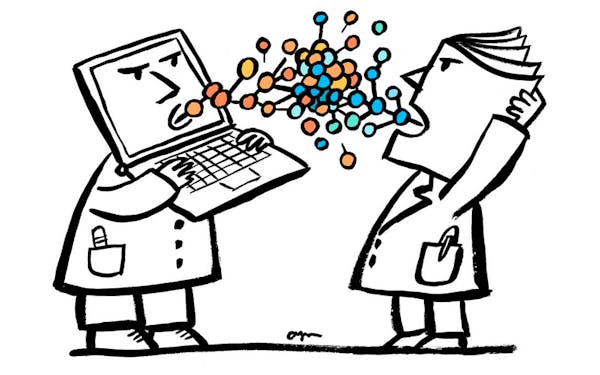Counterpoint
The unfortunate message of Greg Breining's Sept. 9 commentary ("Oh, no -- they've said too much") was that scientists should not engage in policy advocacy. If they do, according to Breining, they risk undermining the credibility of the whole scientific endeavor. In addition to the flaws in its arguments, the essay completely ignored the harmful consequences of deterring scientists from participating in policy debates.
Scientists do not give up their roles as citizens when they decide to pursue a scientific life. They have the same responsibilities the rest of us have to participate in the self-government mission to which this country is dedicated.
One part of Breining's argument was based on an unpublished experiment conducted by Jon Krosnick, a social scientist at Stanford University. A YouTube video from the Sackler Colloquium in May provides some detail about Krosnick's results.
Eighty-six percent of the people who watched a pure science video about climate change reported afterward that they believed climate change was happening, while 78 percent of those who watched a science presentation followed by a policy plea from the scientist gave the same response.
Eighty-one percent of the people who saw just the science video thought climate change was caused by humans, compared with 67 percent of those who saw the science and policy video. The data don't support Breining's statement that the people "who heard the political appeal were turned off." These differences are significant, but even when science and policy advocacy were combined, a large majority still thought climate change was caused by humans.
Most importantly, scientists have a wide range of options for engagement in the policy debate short of directly advocating political action. We need them to be engaged. A climate scientist testifying to Congress should be able to say that the implications of her research lead to the conclusion that, as a society, we have to substantially reduce greenhouse-gas production and that policy measures should be used to achieve that goal.
Breining criticized James Hansen, a climate scientist, for advocating a carbon tax, suggesting that only an economist is qualified to make that case. Breining doesn't explain why a social scientist should be more privileged than a natural scientist to participate in public discussion of climate policy. Perhaps he thinks economists have less credibility to lose. Democracy requires that we hear from a variety of voices and that no citizen's voice should be silenced.
Breining also relied on instances of "stealth advocacy" that allegedly have been occurring in articles submitted to the Journal of Conservation Biology. Depending on the purpose of the journal or of the article's role in the journal, I agree with the broad idea that scientific articles should not blend in policy advocacy. It can be confusing to the reader. One problem with Breining's argument that "stealth advocacy" undermines public confidence in science is that it is unclear how many members of the public read Conservation Biology or Science.
The issue transcends climate science. We need scientists who will go to NASA and Congress and advocate for sending a rover named Curiosity to Mars. We need scientists like Mike Osterholm who will go out on a limb and say that it is risky to expose thousands of State Fair attendees to a chance of getting swine flu and that maybe we should keep the hogs home this year.
We would be worse off if Rachel Carson and John Muir had failed to engage with policymakers. All of Breining's examples deal with environmental topics, particularly climate change, which are contentious. Our democracy would not be well-served if we ask scientists to tell us the policy implications of some research like epidemiology or biology, while we tell other scientists to stay out of the kitchen because it is too hot.
Rather than muzzle scientists, we should educate the public about the practice of science so that people can spot when reporting on scientific evidence changes to advocacy. And we should encourage scientists and engineers to be full participants in the public square.
---------------------------
Steve Kelley is the director of the Center for Science, Technology and Public Policy at the Humphrey School of Public Affairs and is a former Minnesota legislator.

The little park that could … be better
Climate change looms large this election year
For this Minnesota legislator, action targeting child abuse is intensely personal


